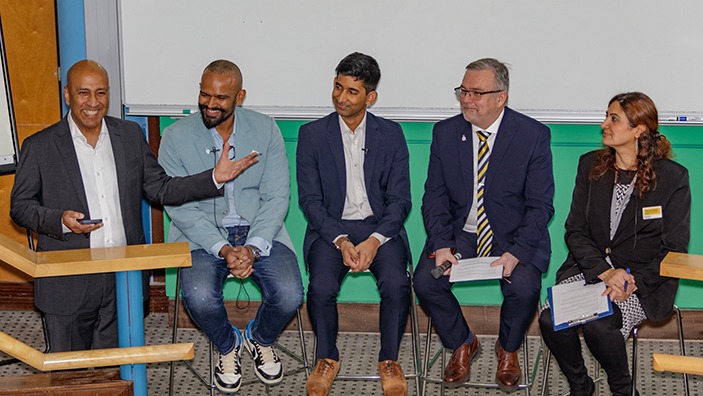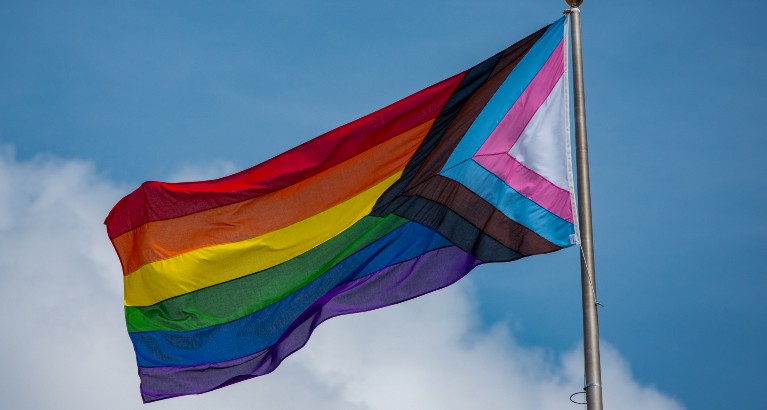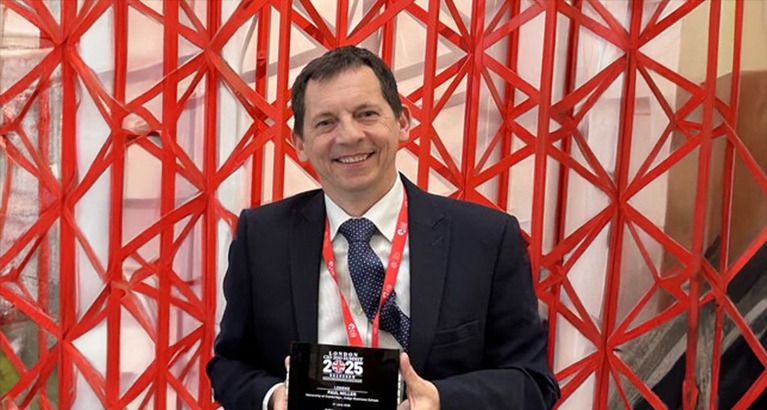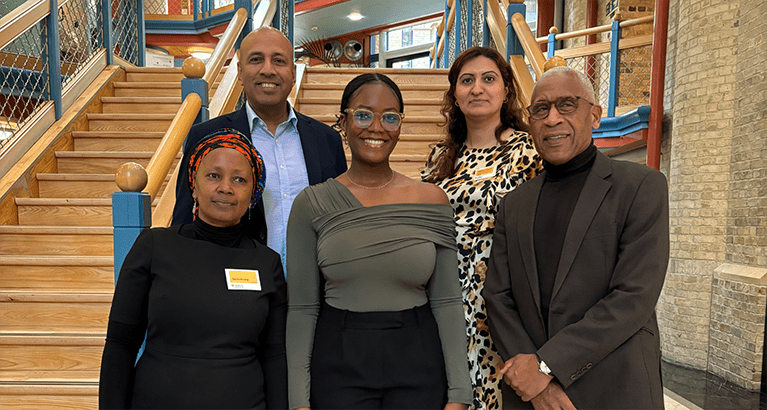Men should strive to be more open about their mental health and wellbeing needs, said participants at a Cambridge Judge Business School panel discussion as part of International Men’s Day events at the Business School.
“Men’s health and particularly mental wellbeing is not talked about enough and is perhaps an area of neglect,” Professor Gishan Dissanaike, Interim Dean of Cambridge Judge, said introducing the 19 November event that featured 2 Cambridge Judge students and the Business School’s Facilities Services Manager.
The event was moderated by Manaz Javaid, Equality, Diversity and Inclusion Manager at Cambridge Judge, who noted that in the UK men live on average 3.7 years less than women and men tend to wait longer to seek medical attention, which makes symptoms worse.
2 students share their perspectives on allyship and mental health

Among other topics, the panel examined the concept of ‘allyship’.
“Allyship includes addressing the unique challenges men face while also understanding the privileges men hold in most spheres,” said panellist Nath Samaratunga, a Cambridge MBA student (MBA 2024) who is also studying medicine at Rutgers University. “I have seen at my workplace, a hospital, instances where men don’t access resources for physical wellbeing and mental health.”
Gokul Yesodharan, an Executive MBA student at Cambridge Judge (EMBA 2023) with a decade of experience in the health and wellness sector across regions, said that gender balance has rightly changed to include more women in previously male-dominated fields, “due to this sudden shift, many men can find these changes challenging and this can compound mental stress.” He added that in the current economic climate many men also feel a lot of pressure around job insecurity, given their traditional role as breadwinners.
More men are now starting to speak out, but burnout is a big problem
Kevin How, the Business School’s Facilities Services Manager, previously had 28 years in the military where he led teams and witnessed different types of comradeship. He said that owing to a caveman mentality, many men in the military have traditionally not acknowledged stress; while that is now changing, many “still wrestle with how to speak out and how to seek help”. Burnout is a particular problem in the workplace, because many men put a lot of pressure on themselves thinking “we’ve got to do everything”.
Kevin noted that Cambridge Judge has stepped up recruitment and training for mental first health aiders, and that a wellbeing room is nearing completion.
Nath commented that uncertainty over the nature and definition of masculinity results in a sense of loneliness among many men, noting that a former US Surgeon General wrote a book about how loneliness is linked to alcohol, drug and other issues. That 2020 book, by Vivek Murthy, is entitled Together: Loneliness, Health and What Happens When We Find Connection.
Why leaders need to pay attention to each individual
On the role of line managers, Kevin said the key factor is awareness, as many people who have mental health issues show red flags including visible changes in behaviour that should not be ignored. Gok added: “The first thing a leader needs to focus on is how the person in front of them is doing, rather than how a certain KPI (key performance indicator) is being met.”
Kevin said that owing to social media younger generations are more used to talking, but it’s a greater challenge for older generations to open up. And while social media has created a lot of unhealthy pressure on people to look a certain way, Nath noted that social media also has potential to raise awareness and create positive change if channelled appropriately – so “we need to work at that to help combat the negative”.
Everyone has a role to play in making it more acceptable to talk about and acknowledge the issues men face in relation to their health and wellbeing.





